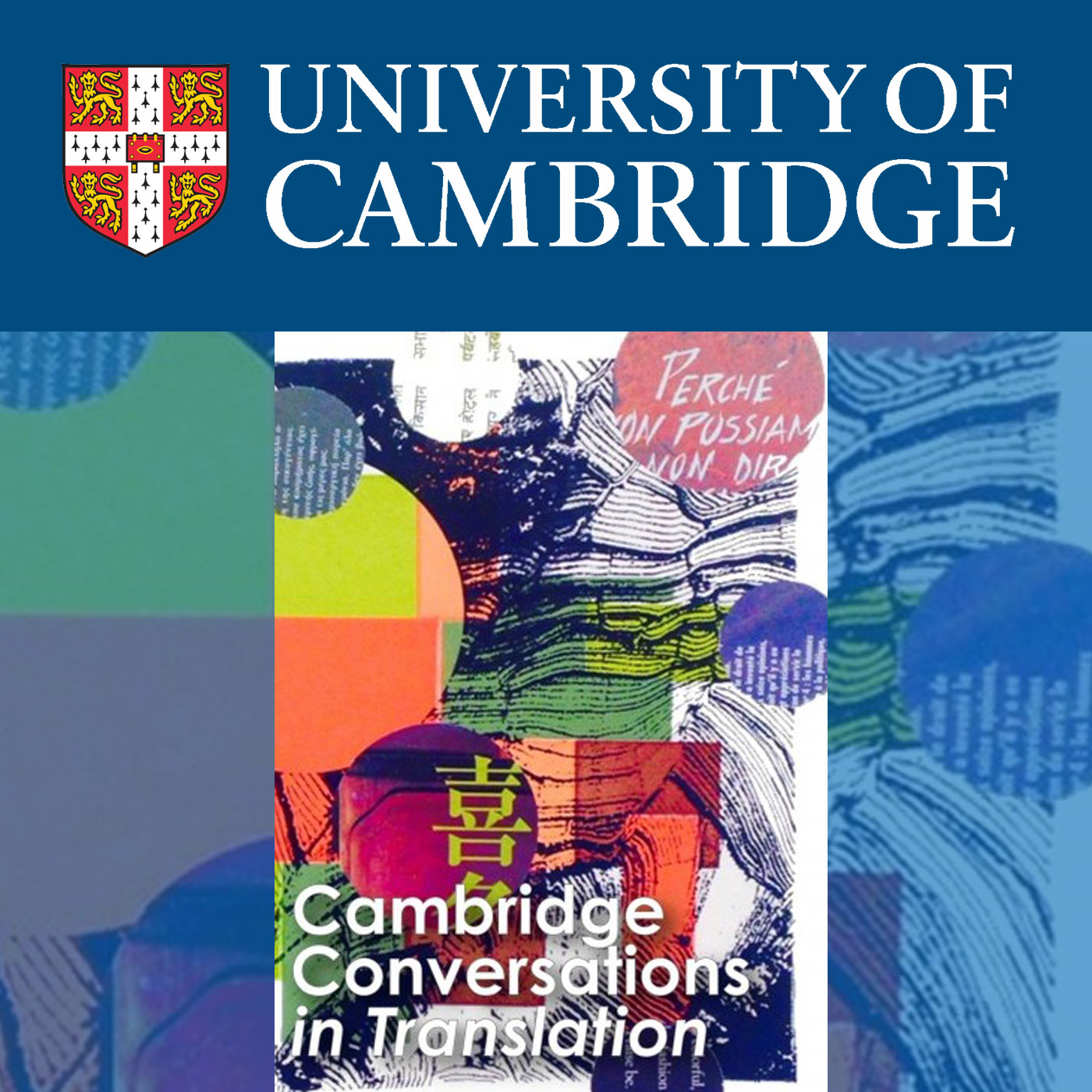Cambridge Conversations in Translation - 2 March 2016 - Translation and the Periphery (Workshop)
Duration: 2 hours 5 mins
Share this media item:
Embed this media item:
Embed this media item:
About this item

| Description: |
Angel Gurría-Quintana (Translator and Literary Critic)
Orri Tomasson (Teaching Associate in Modern Icelandic, University of Cambridge) In recent decades, as the study of translation has shifted from the search for ideal equivalence to a pervasive focus on difference, so literary writing and translation have increasingly been caught in a complex tangle of power asymmetries. From linguistic differences (e.g., high-prestige / low-prestige; national / regional; standard / non-standard) to culture contrasts (e.g., dominant / marginal; Eastern / Western; male / female), much scholarly attention has been devoted to understanding how writers and translators are necessarily implicated in the contentious ongoing process of determining the placement of various ‘centres’ and the location of their corresponding ‘peripheries’. While translation projects can certainly bolster prevailing hierarchies, they can also engender provocative instabilities, providing alternative perspectives by giving literary prominence to marginalised peoples, endangered languages, and disenfranchised communities. As Sergio Waisman has noted, ‘[t]ranslation […] has drastically different cultural political implications for writers in geopolitical margins than it does for those in geopolitical centres’ (Waisman 2005, 124). Prompted initially by seminal work in feminist translation (von Flotow 1991; Spivak 1993; Simon 1996) and postcolonial translation (Niranjana 1992; Bassnet & Trivedi 1999; Tymoczco 1999), recent studies have teased out the implications of hegemonic discourses on the creation and circulation of literature, and have increasingly broadened the scope of the debate (Liu 2000; Cronin 2003; Granqvist 2006; Hermans 2006; Baker 2007; Bassnett 2009; Orsini & Srivastava 2013). Topics that have received focused attention in recent years include the gender-conscious strategies of the ‘Canadian School’, the legacy of Spivak’s literalist approach to the translation of regional languages, the debate about whether translations from endangered languages help to preserve those tongues or merely hasten their demise, and the ways in which ‘Otherness’ is negotiated in translations from different cultural contexts. The workshop will provide an opportunity for the participants to share theoretical perspectives and methodological practices that are pertinent to the task of creating translations that necessarily involve some kind of periphery, whether linguistic, cultural, or socio-political. |
|---|
| Created: | 2016-03-10 09:09 |
|---|---|
| Collection: | Cambridge Conversations in Translation |
| Publisher: | University of Cambridge |
| Copyright: | Glenn Jobson |
| Language: | eng (English) |
| Distribution: |
World
|
| Keywords: | CRASSH; Conversation and Translations; Angel Gurría-Quintana; Orri Tomasson; |
| Explicit content: | No |
| Abstract: | Angel Gurría-Quintana (Translator and Literary Critic)
Orri Tomasson (Teaching Associate in Modern Icelandic, University of Cambridge) In recent decades, as the study of translation has shifted from the search for ideal equivalence to a pervasive focus on difference, so literary writing and translation have increasingly been caught in a complex tangle of power asymmetries. From linguistic differences (e.g., high-prestige / low-prestige; national / regional; standard / non-standard) to culture contrasts (e.g., dominant / marginal; Eastern / Western; male / female), much scholarly attention has been devoted to understanding how writers and translators are necessarily implicated in the contentious ongoing process of determining the placement of various ‘centres’ and the location of their corresponding ‘peripheries’. While translation projects can certainly bolster prevailing hierarchies, they can also engender provocative instabilities, providing alternative perspectives by giving literary prominence to marginalised peoples, endangered languages, and disenfranchised communities. As Sergio Waisman has noted, ‘[t]ranslation […] has drastically different cultural political implications for writers in geopolitical margins than it does for those in geopolitical centres’ (Waisman 2005, 124). Prompted initially by seminal work in feminist translation (von Flotow 1991; Spivak 1993; Simon 1996) and postcolonial translation (Niranjana 1992; Bassnet & Trivedi 1999; Tymoczco 1999), recent studies have teased out the implications of hegemonic discourses on the creation and circulation of literature, and have increasingly broadened the scope of the debate (Liu 2000; Cronin 2003; Granqvist 2006; Hermans 2006; Baker 2007; Bassnett 2009; Orsini & Srivastava 2013). Topics that have received focused attention in recent years include the gender-conscious strategies of the ‘Canadian School’, the legacy of Spivak’s literalist approach to the translation of regional languages, the debate about whether translations from endangered languages help to preserve those tongues or merely hasten their demise, and the ways in which ‘Otherness’ is negotiated in translations from different cultural contexts. The workshop will provide an opportunity for the participants to share theoretical perspectives and methodological practices that are pertinent to the task of creating translations that necessarily involve some kind of periphery, whether linguistic, cultural, or socio-political. |
|---|---|

